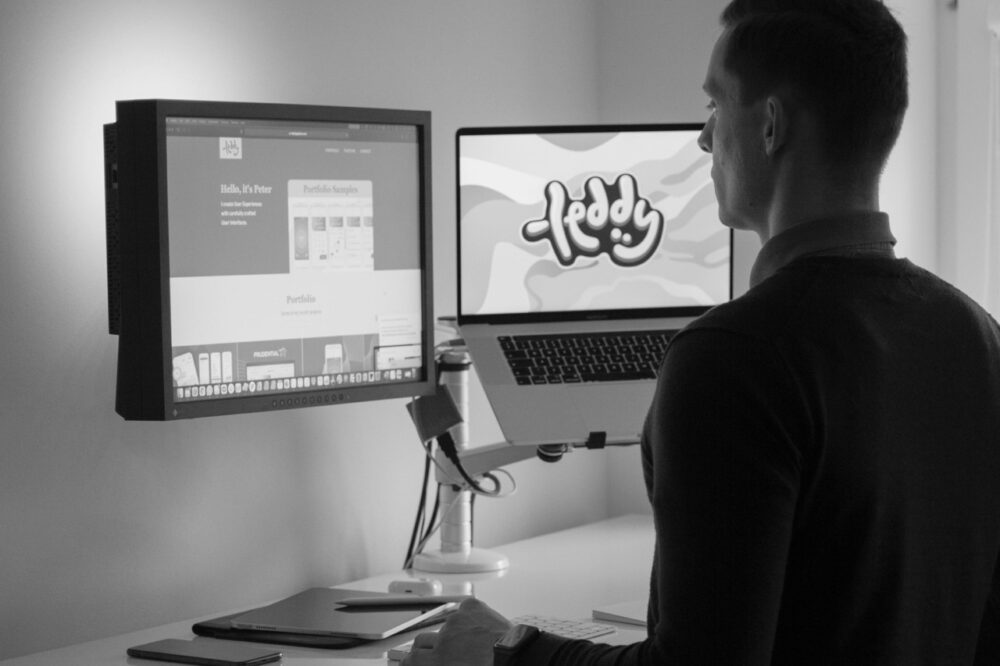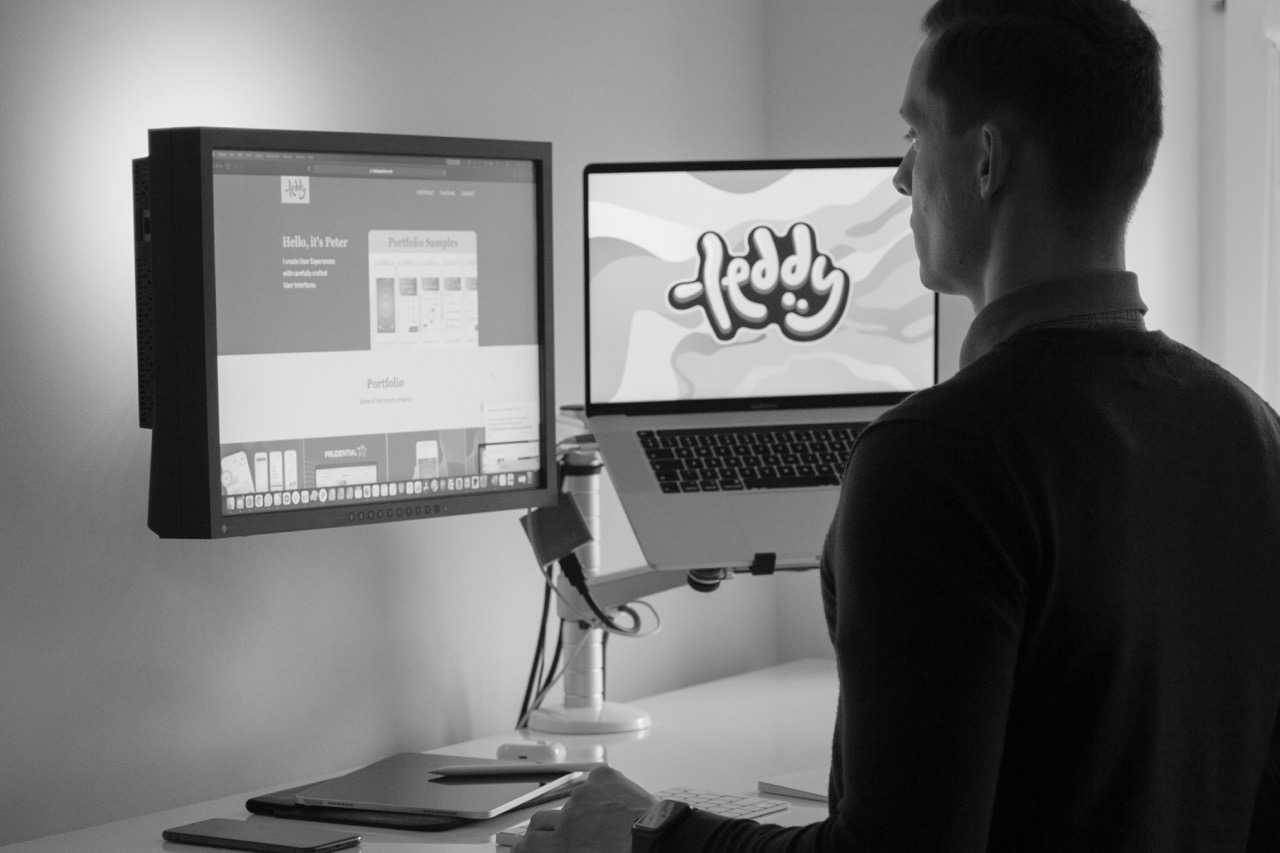In recent years, online poker professionals have turned to multi-screen setups to enhance their ability to manage multiple tables efficiently. Having multiple monitors is vital for boosting productivity, especially in environments that demand quick decision-making and high levels of concentration. Studies highlight the advantages of such setups in various tasks.
Using multiple monitors allows poker professionals to organize different game elements and creates a workspace that addresses the physical and mental challenges posed by long hours of online gameplay.

Multi-Monitor Efficiency in Poker
The benefits of multi-screen setups are backed by research. A study from the University of Utah highlighted the ease of use and comfort advantages of multiple monitors compared to single screens. Measurements included effectiveness, comfort, ease of learning, and mistake recovery. These studies support the increased efficiency of multi-screen configurations, which can also apply to online poker. Microsoft’s research indicates productivity gains ranging from 9% to 50% for users with multiple monitors. For poker players, this means they can manage several tables at once without losing concentration or compromising the quality of their decisions.
Productivity boosts are also prominent in the context of software tools used by players to play poker online. Poker heads-up displays (HUDs) and other table management software work best with extra screen space, allowing for the handy display of important statistical data. Employing such tools on dual or even triple monitor setups ensures information is visible alongside gameplay, minimizing the need to switch between windows and thereby enhancing focus and reaction speed.
Additionally, multi-screen setups offer another advantage: a consistent visual field for keeping up with fast-paced gameplay. Professional poker players know that even brief distractions can lead to costly mistakes. Multi-screen setups help maintain awareness by organizing different tables or game elements across screens, letting players easily monitor key game actions.
Optimal Monitor Specifications for Multi-Tabling
Choosing the right monitors is key for online poker professionals aiming for seamless multi-tabling performance. Resolution is often more important than physical size when selecting monitors. Many poker players prefer higher resolutions like 2560×1440 or 4K, which can accommodate numerous tables and detailed data displays compared to Full HD. Larger screens, especially those with higher resolutions, make it easier to display multiple tables side by side while retaining clarity.
Ultra-wide monitors present a useful alternative for users constrained by desk space. Resolutions such as 2560×1080 or 3840×1600 effectively merge the viewing area of two traditional monitors into a single screen space. This continuous view provides seamless visibility of multiple poker tables, making it easier for players to track various hands in play without having to adjust windows or risk missing key information.
Some poker professionals also utilize curved monitors to improve peripheral visibility, allowing them to monitor all tables more comfortably within their field of view. A curved screen can provide a more immersive experience, reducing eye strain and enhancing comfort during long gaming sessions. For poker players who prefer a traditional multi-monitor setup, adjustable monitor stands allow them to stack or align screens ergonomically for maximum viewing efficiency.
Creating an Efficient Gaming Environment
Switching to a multi-screen setup requires poker professionals to consider screen layout and ergonomic factors carefully. Effective table management strategies enable players to customize their workspace and prioritize urgent tables, which helps maintain a steady decision-making pace. Players often stack tables on one screen and place key tables separately on another, maintaining a constant overview of game actions.
In addition to monitor setups, investing in ergonomic accessories is essential for creating a comfortable, productive environment. Using mechanical keyboards and customizable mice with programmable hotkeys can streamline operations, allowing players to respond to in-game events with speed and precision. These configurations support detailed game plans and permit quick, accurate in-game responses without additional strain.
A well-planned monitor arrangement addresses the physical demands of long poker sessions. Aligning monitors at eye level on adjustable stands helps alleviate neck and eye strain, especially for players who may spend hours at a time focusing on multiple screens. Moreover, standing desks or ergonomic chairs are recommended to counteract the negative health impacts of prolonged sitting.
Technological Tools for Enhanced Multi-Tabling Performance
Multi-screen setups, combined with specialized software tools and ergonomic designs, offer significant advantages for online poker players managing multiple tables. Advanced software solutions, including popular HUDs like PokerTracker and Hold’em Manager, allow players to track opponents’ tendencies, pot odds, and win probabilities in real-time. These statistics provide players with insights into opponents’ strategies and patterns, enabling data-driven decision-making. On a multi-screen setup, HUDs and other tools can be arranged for instant access without overlapping active poker tables.
Multi-tabling performance also benefits from multi-screen setups by minimizing delays caused by switching between screens or apps. Players who use three or more monitors can dedicate each screen to different activities: one for HUD data, one for in-game tables, and another for strategy notes or poker guides. This separation of tasks optimizes concentration and allows players to execute strategies without distraction, enhancing both focus and productivity.
Conclusion
Multi-screen setups have become a game-changer for online poker professionals, streamlining multi-tabling and enhancing strategic play. By carefully selecting optimal monitors, arranging ergonomic setups, and incorporating reliable software tools, poker players can create an efficient, comfortable workspace. Combined with technological tools like HUDs, these setups offer insights into opponents’ strategies and patterns in real time. With ongoing advancements in technology, multi-screen setups are likely to become an industry standard, shaping the future of online poker by enabling professionals to play with precision, comfort, and minimal strain.




















